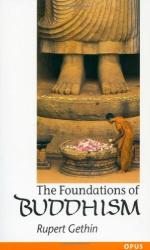|
This section contains 585 words (approx. 2 pages at 400 words per page) |

|
Chapter 6, No Self, Personal Continuity and Dependent Arising Summary and Analysis
The ceasing of the world is to be found in the mind, and so the Buddhist conception of one's experience of the world and consciousness is crucial to understanding Buddhism. The Buddhist critiques the notions of "self", which were originally aimed at other understandings of the self that Buddhism arose in reaction to. For instance, the early Upanishads hold that the self cannot suffer and never changes due to experience. But the Buddhist critique of self also relates to universal questions about personal identity.
The Buddhist conception of experience in the Abhidarma separates experience into five "aggregates" or skandhas for physical and mental events: bodily phenomena, feelings, labeling and recognizing, volitional activities, and conscious awareness. For Buddhists, these five types of experience have no essential unity and...
(read more from the Chapter 6, No Self, Personal Continuity and Dependent Arising Summary)
|
This section contains 585 words (approx. 2 pages at 400 words per page) |

|




